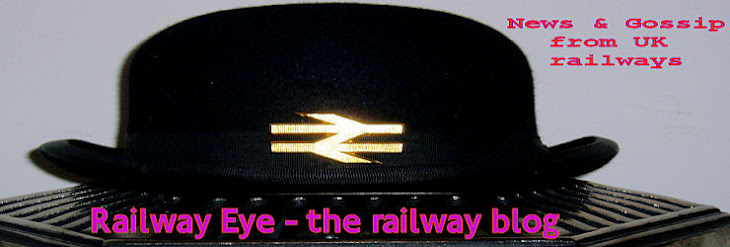The Fact Compiler has received an intriguing invitation to the Weardale Railway's 1940's themed 'War on the Line' event this weekend (2nd & 3rd of August).
Entering into the spirit of the occasion the Weardale's website promises gunfire, unexploded bombs and air raids.
Unfortunately the railway is one kettle short of a service and is therefore having to use a modern diesel as traction over the weekend.
Unabashed by such operating vicissitudes the website offers the following creative explanation:
"Trains: NB: Due to a direct hit the steam engine is out of commission. The Class 73 diesel will be operating the service between Wolsingham and Stanhope. (Diesel engines were used during the war – the advantage being that during air-raids the lights on the whole train could be switched off all at once)."
Perhaps a perfect illustration of the danger of trusting your PR department to dig you out of a hole. The Fact Compiler fears that the train may not be alone in having its lights out...
UPDATE: Telegrammed by our man in the flying goggles: The main use of loco sized diesel engines during the war was to power the vessels of our gallant submariners (and of course the despicable Hun U-Boats). Warming to his theme Capt. Biggles claimed that replacing a kettle with a class 73 is similar to replacing a Spitfire with a Hawker Hunter!
Wednesday, 30 July 2008
At one with nature
Good news for tree huggers.
According to the Environment Times London Underground manages 10 per cent of the Capital's biodiversity.
More than 200 trackside sites, totaling almost 2,000 acres, have been identified as Sites of Importance for Nature Conservation.
And in recent years an impressive 550 plant species, 42 types of bird, 14 mammals, and 538 invertebrates have been recorded on LU's network.
Presumably the remaining 90% of London's bio-diversity is to be found, unmanaged, on Network Rail infrastructure.
According to the Environment Times London Underground manages 10 per cent of the Capital's biodiversity.
More than 200 trackside sites, totaling almost 2,000 acres, have been identified as Sites of Importance for Nature Conservation.
And in recent years an impressive 550 plant species, 42 types of bird, 14 mammals, and 538 invertebrates have been recorded on LU's network.
Presumably the remaining 90% of London's bio-diversity is to be found, unmanaged, on Network Rail infrastructure.
Oyster in BBQ Sauce
The TranSys' summer BBQ was an unusually subdued affair last Wednesday (23rd July) .
In previous years the Smartcard PFI Contractor has been besieged by TfL staff begging to attend the annual shindig.
However, this year even those with much sought after tickets pleaded prior engagements of the 'underwater knitting' variety.
Regular visitors to Railway Eye may recollect that there have been a number of issues in recent weeks with Oyster card readers.
Surely TfL bosses weren't small minded enough to suggest that staff attending the do might find it "career limiting"?
In previous years the Smartcard PFI Contractor has been besieged by TfL staff begging to attend the annual shindig.
However, this year even those with much sought after tickets pleaded prior engagements of the 'underwater knitting' variety.
Regular visitors to Railway Eye may recollect that there have been a number of issues in recent weeks with Oyster card readers.
Surely TfL bosses weren't small minded enough to suggest that staff attending the do might find it "career limiting"?
